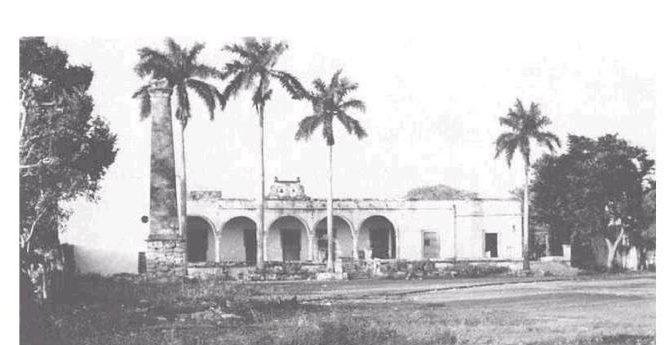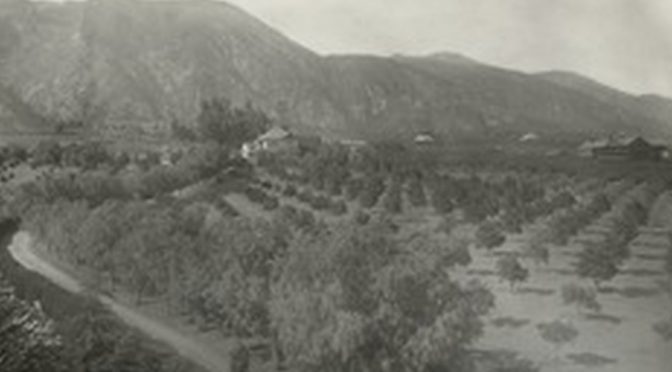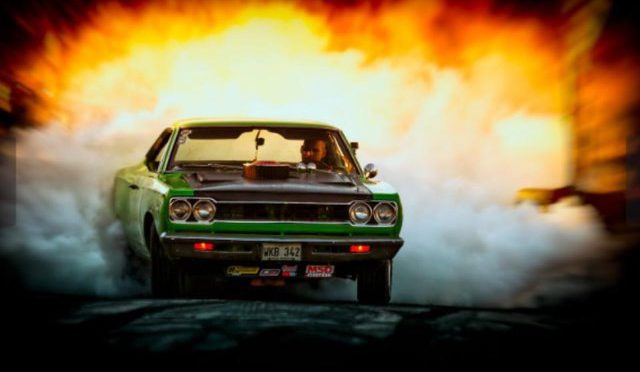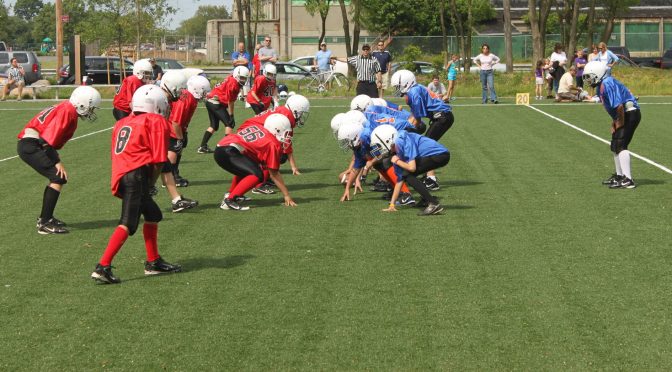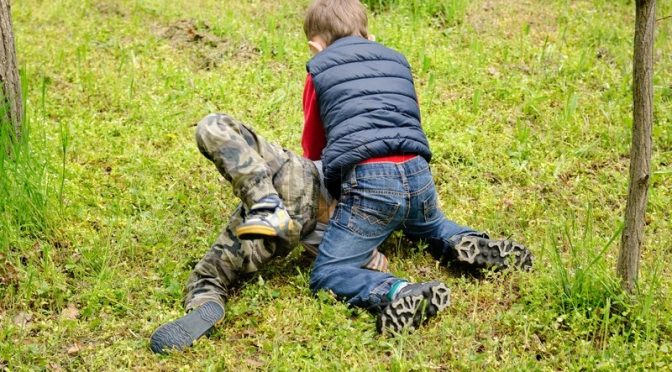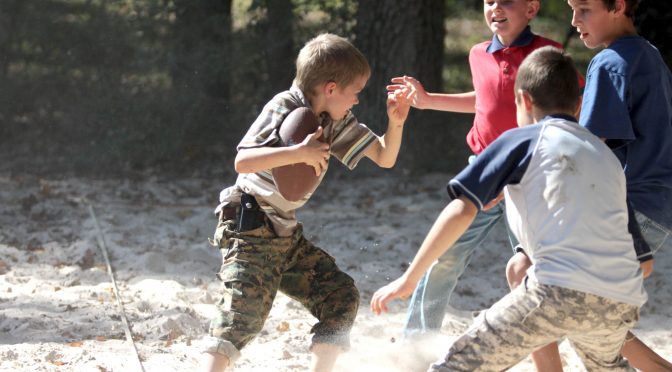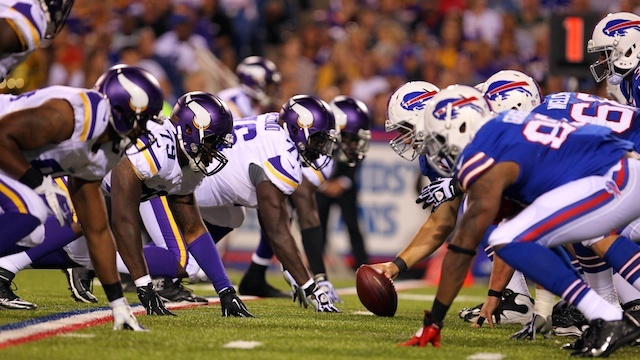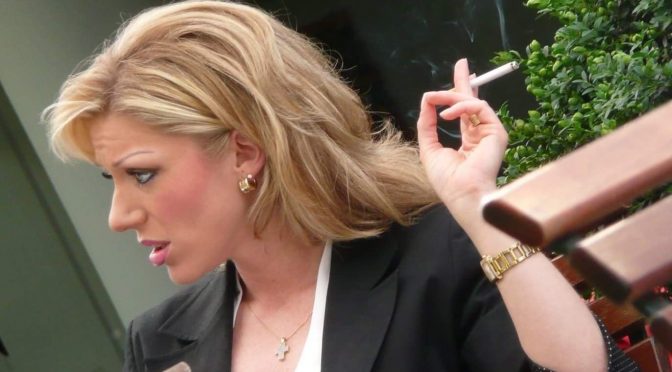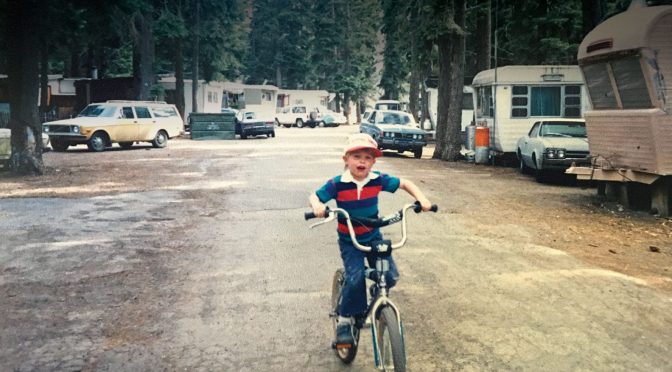For the next several days, it was just me and Hortensia. At a distance I caught sight of workers trimming trees and doing other chores, but had no interaction with them. That first night, before Uncle Si left me alone with the nice Mexican woman, he had warned me to keep my distance from the hired hands.
Hortensia presented me with a shirt and pair of pants she had put together in her sewing shop. Then she took my old clothes, washed them in another antiquated contraption with her normal laundry, and hung them on a clothesline outside to dry. Each day for several days, she would present me with more homemade clothes, until I had pants and shirts for every day of the week. I tried to express my gratitude, which seemed to delight her.
I wondered if she had kids of her own. If so, I sure never caught sight of them around the farm. What lucky kids they would be, to have a mother like her!
She let me read one magazine a day after that first night, but insisted I play outside for most of the sunlight hours. I resumed my daily runs, and practiced the martial arts techniques Uncle Si had taught me, so far, not wanting to forget any of it.
Aside from the orchard workers, the only other person we encountered was a mail deliverer who arrived in the strangest looking delivery van I’d ever seen. The tires were so skinny, they almost belonged on a bicycle. The hood was a tiny, tent-shaped construction of sheet metal, with visible hinges holding the panels together. Other parts of the vehicle appeared to me made of wood!
As fascinated as I was by the mail truck, that’s how fascinated the mail man was with my sneakers.
He delivered a package, a letter, and two more of the fantastic magazines. They were brand new, yet also had dates from 1934.
Hortensia handed him a small stack of letters. They exchanged some pleasant small talk as best they could with her limited knowledge of English. He asked a few questions about me, but I was too preoccupied by the magazines to catch all that was asked and said.
There was a cow on the property, which was milked by one of the workers early every morning. Hortensia separated the cream, curds, and other parts I learned were part of dairy-fresh milk, and processed all of it herself before I had come along. Now she taught me how to churn butter, and make homemade ice cream. Aside from her being a good cook, I learned that one reason her meals tasted so good was the ingredients—like farm-fresh eggs and real butter. (I had grown up never knowing any alternative to margarine, which my mother and I called “butter.”)
Hortensia read a Spanish Bible and prayed every morning. She collected eggs every day; kept the huge house clean; washed and dried the laundry; cooked; washed dishes; sewed; knitted; and kept an eye on me. If my biological family hadn’t been murdered, I might not have felt guilty about wishing she was my mother.
Despite working so hard to keep up the home, she was generally a happy person, and at peace.
I never broke down in a crying fit after that first day, but she continued to lavish affection on me at regular intervals. That affection rapidly became mutual. I addressed her as “Ma’am” a few times, until she told me to call her “Mami” instead. She began to address me as “Pedro,” “Mijo,” and sometimes “Pedrito.”
She also began teaching me Spanish, with reserves of patience I couldn’t even appreciate at the time.
Then, one morning, Breakfast was not ready by the time I woke up.
I dressed and made my way to the kitchen. She wasn’t there, and the primitive stove wasn’t fired up. I began to worry instantly.
“Mami?” I called. No answer.
I searched the house, and finally called out for her just outside her bedroom door (which she normally left open; but was closed and locked on this particular morning).
I heard rustling, then some undecipherable response. It was her voice, so relief flooded over me. I hadn’t wanted to let the thoughts take coherent form, but images had flashed through my mind of Mami being murdered by the Erasers.
“One hour, Pedrito!” she finally called, from inside her door.
I brought in the milk and collected eggs while waiting. I also read a few stories from one of the magazines.
When Mami appeared, she was dressed much like she had been that first night I met her. But there was something different about her. Normally a cheerful person, on this occasion she was practically glowing.
And she was clinging tightly to Uncle Si.
“Hey, Sprout,” he greeted me. There was something different about him, too. One difference was that he was smiling. He didn’t do that very often.
The other difference…no, it wasn’t a difference now. The difference had been when he saved me from the Erasers. On that occasion, as weird as it might be, he seemed a little bit taller; more muscular; and his nose and teeth had been perfectly straight. This realization jarred me.
Evidently reading my confusion, he said, “Let’s go talk while Mamita gets breakfast ready.”
I followed him into the room with all the books. He sat in one of the padded chairs, and gestured for me to do likewise. I sat in the one facing him.
“Is it really 1934?” I asked. “Or am I crazy?”
He sighed, then shrugged. “You’re not crazy. We’re in the early years of the Great Depression, although…” he waved in a circular pattern, “we’re weathering the financial storm fairly well.”
“That car you picked me up in…it was a time machine.”
“What car?” he asked, squinting. “Oh. Oh, right. The car you came here in.” He chewed on his lip for a moment, gaze roaming around the ceiling. “‘Time machine’ is kind of a cheesy science fiction term. How you got here was by a process…well, if you want to call the technology by a simple name, then ‘Warp Generator’ is simple enough to say, and it’s a bit more accurate.”
My brain short-circuited. I had so many questions, I couldn’t choose one to ask first.
“Tell you what,” he said, leaning back in the chair and putting his feet up, “I’ll give you a brief overview that might answer most of your questions. Then, when you have more, you can ask those, too. And there’s no rush—we got all the time in the world.” He made a face and chuckled at his own remark.
“Works for me,” I said.
“Alright. So, first of all, the Warp Generator gives a lowly human being the ability to seriously FUBAR reality as we thought we knew it.”
“FUBAR?” I asked. “Sorry—I don’t know that word.”
He snapped his fingers. “Oh, that’s right: you still haven’t…” he rolled his eyes and twisted his lips. “Well, anyway, it stands for ‘Fowled Up Beyond All Recognition.’ Jack up. Mess up. Got it?”
I nodded.
“Good. So how many dimensions do we exist in?”
“You’re asking me?” I replied.
He nodded.
“Um, three, I guess.”
“That’s not precisely correct,” he said. “We can perceive those three dimensions: height, width and depth. We can also perceive the fourth dimension, which is time. We can perceive time. We can measure it. But we can’t define it. And, until one day in your relative future, we couldn’t break free of its linear limitations. On that day, a group of scientists is gonna figure out how to open portals through dimensions.”
He closed his eyes and, with a pained expression, made horizontal chopping motions with his hands, as if his forearms were scissor blades. “But I’m getting ahead of myself. We perceive four dimensions, but science has determined that more than twice that many exist. And human beings might exist within most or all of them, despite most of us not even realizing…or caring…that they do exist. Follow me?”
“I think so,” I said. “Sorry, but it’s confusing.”
He nodded. “It is. And the more you know about it, the more confusing it gets. So I’m trying to keep it simple. The scientists came up with a way to open dimensional portals some time before 1991. Now whoever can access such a portal can do a lot of stuff that shouldn’t be done—and that includes jumping a warp through space and time…which defies the natural limitation. The natural limitation allows linear progression, forward only, in sync with entropy. You with me?”
“Um…” I muttered.
“Hey, I’m not even gonna get into hyperspace or any of that, so relax. Now we can jump through a warp into the past or future. So, with such a capability, it would be catastrophic if it fell into the wrong hands. Right?”
“Right,” I said.
He pointed to himself. “Well, it fell into the wrong hands. Savvy?”
“Your hands,” I said. “The wrong hands? Sorry…but you’re identifying yourself as a bad guy?”
He laughed and slapped his leg, saying, “Everything hangs on perspective, doesn’t it? There’s a powerful organization that believes I’m a bad guy. And I admit, I feel kind of like a supervillain sometimes. However, from my point of view, that powerful organization represents ‘the wrong hands’ for the tech to fall into.”
I thought about this for a moment. I hadn’t yet heard of the phrase ‘moral relativism,’ but I certainly had noticed the principle in operation: Everybody assumed they themselves were right about everything. Two people, on opposite sides of any conflict or issue, were both absolutely convinced they were right and the other side wrong. They adjusted their concept of morality to fit their own actions and desires. So, the concept that both Uncle Si and someone else each thought the other was too dangerous to be trusted with a time machine…warp generator…did ring true to me.
“If you stray outside your limitations,” he continued, “you’re gonna change something. But, for instance: if someone goes back and kills your great grandparents, 60 years before you were born, you don’t suddenly cease to exist in the here and now…even though you might assume the foundation of your existence would be kicked out from under you. But what does happen, to put it into crude terms, is: it would create a split in the timestream.”
“The timestream,” I repeated, numbly.
“Right. Time is like a huge river. The current is slow, but can’t be stopped. It can be split and diverted. And, if carefully done, those separate streams can sometimes be looped back into themselves to merge, so that nobody is the wiser.”
“So, you’re saying, by going into the past and changing something, an alternate reality is created?”
He laughed triumphantly and clapped his hands. “Yup! I told you you were smart. So in one reality, everything is just like it is in your experience, and progresses from there into the future. But in the other reality, there is no you…never was…because your grandparents were killed and that preempts your conception.”
“I follow what you’re saying,” I said, pleased to not be utterly lost. Maybe I wasn’t totally dense, after all.
“Good. Now some changes are minor, meaning the split is minor. Only a little creek splits off from the vast river of time, and it hardly makes a difference. In fact, the creek probably merges back into the river soon anyway. I go find some average schmoe somewhere in this year right now; I tell him about the Internet, the moon landings, or electronic fuel injection. What happens? Most likely, he dismisses me as a lunatic and goes on about his business. Nothing really changes, other than he laughs to himself when he remembers the lunatic who pronounced some preposterous technologies of the future. Or maybe I’m a little more convincing, and for whatever reason, he tells somebody else what I told him. So they dismiss him as a lunatic, and that mucks up his life for a little while, but over time he learns to keep his mouth shut about it, and life returns to whatever is normal for him. No noticeable disruption in the timestream, unless somebody is observing that particular guy’s life.”
“Observing,” I muttered. “Sorry…but who would be observing?”
He showed me his palm. “Hold on. I’ll get to that. So me getting you into Pee Wee Football…that’s just a minor split, that doesn’t affect hardly anybody, in the big scheme of history. But let’s say I jump a warp back to ancient Rome, and I prevent the assassination of Julius Caesar…”
My mind raced, trying to place that name. I’d read it, somewhere.
“…Now something like that,” he went on, “theoretically might alter the course of world history, in a big way.”
“And an alternate reality is created,” I mused, out loud.
He nodded. “I don’t understand all the science, but there’s a Continuum Protection Bureau, which monitors this stuff. They have means to alert them when a major split like that occurs—when alternate realities begin to divert and spread.”
He sighed and licked his lips. “Let me give you a little background: shortly after a method was discovered to access the portals, the scientists organized an expedition to another solar system to mine some minerals and other stuff that’s rare here on Earth.”
“You mean they…jumped a warp…to another planet.”
“Right. The warps can bridge spatially as well as temporally—distance and/or time. You’ve probably figured out that you’re not in Missouri anymore. You’re in California. But you didn’t drive the entire distance on roads.”
It wasn’t me who drove, as he very well knew, but I didn’t see the point in nitpicking details.
“Anyway, the technology was new back then,” he said. “Instead of traveling extraterrestrially, a mistake was made; they wound up elsewhere on Earth, in our historic past, and they really made a mess. It caused a major disruption like what we’re talking about. The CPB was formed shortly after. The Bureau thought they identified how to correct the split, and sent a team back to prevent the disruption, but the second team screwed the pooch and caused another split.”
“So now there were two alternate realities,” I said.
He nodded. “Then, some agents from the CPB decided they could live better lives in one of those alternate realities, and they deserted, jumping warps into who-knows-where, and who-knows-when. Some of them were reckless, and caused further splits. One of them decided to desert, jump a warp into Earth’s history, taking a couple warp generators with him—one broken, and one functional. This guy was fairly clever, and used the broken one to reverse-engineer several more, on the down-low. He’s been careful not to cause any major splits, but he’s established several safe havens in various times and places. He’s found that the least conspicuous way to keep the warp generators handy is to conceal them in a vehicle. And he took a minor risk, out of sympathy for his nephew…by protecting him from certain incidents, and trying to teach him some stuff that should help him enjoy a better life.”
I let this sink in for a moment. “It’s you you’re talking about? You deserted, and stole the warp generators?”
“Yup. But I’m getting ahead of myself again. After those first couple splits, the CPB hired and trained a Temporal Police Force. One special branch of the TPF is specifically tasked with hunting down unauthorized warp-jumpers, removing them and everyone with an immediate connection to them, then eliminating evidence of their execution…sometimes their very existence, when possible. That branch doesn’t officially exist. I call them the Erasers.”
I recalled flashes of my family’s bodies disappearing into the invisible window—which I guess was just a cloaked cargo van from the future.
“They haven’t been able to locate me,” he said. “Obviously…or I would no longer exist in any reality. I haven’t caused any major splits that I know of, or made public the technology we use, so I didn’t think finding and erasing me was a big priority. In fact, I kind of began to assume they were going to leave me alone, if I kept a low profile and didn’t start sharing their secrets with the whole world. Something must have changed, for them to come after you when they did. They discovered our connection, somehow. They wanted to take you out way, way before you ever had a chance to…”
His gaze shifted past me, to the hallway. I turned in the chair and looked. Mami had arrived, bringing breakfast smells with her from the kitchen.
This breakfast was served in the formal dining room. Instead of French Toast, Mami had made chocolate chip banana nut flapjacks. The meal was heavenly. She had added grits, but the high point was definitely the pancakes.
Mami ate with us, sitting close to Uncle Si. She couldn’t seem to stop glancing at him, and smiling at both of us. “I mees you,” she told him, more than once. He grinned back at her. I felt like urging him to repay her affections in kind, but he only rubbed her neck once, then kissed her on the cheek when finished with his food.
When all of us were done, they spoke back-and-forth in Spanish for a while. I could recognize some words, here and there, just from what little Mami had taught me.
After Mami had cleaned the table, and was in the kitchen washing dishes, I tried to restart our conversation from before. “Why?” I asked.
He raised his eyebrows.
“Why do they erase people? Why are they trying to reverse the splits?”
He wiped his face with a cloth napkin and said, “Tell me if you’ve heard this old axiom yet: ‘power corrupts; and absolute power corrupts absolutely’.”
I shook my head. “Sorry, no.”
“Well, there’s something you might as well learn about the filthy rich and filthy powerful, right now: when some dirtbag acquires more wealth and power than he knows what to do with, you’d think he’d be content. He’d spend the rest of his life vacationing in the tropics, playing golf, or whatever. But that’s not what happens. The prick isn’t happy being richer than everyone else—he wants to take everything other people have, too, until he has everything and they have nothing. It makes no sense, I know. But you can bank on it. And he’ll lie, cheat, steal and murder to make it happen. Well, it’s the same way for governments. No matter how much power and control they accumulate…legally and illegally…it will never be enough until they can micromanage every mundane detail of every citizen’s life. They’re not worried in the slightest that splitting streams will result in some space-time catastrophe. What they can’t tolerate is the probability that a lot of deserters will escape their control. The most terrifying catastrophe for a corrupt government is that men might find a place to live free, and find out that it’s much preferable to the safe, regulated Utopia they’ve been programmed to fantasize about. Others will notice them prospering and, unless they can be conditioned to believe individual prosperity is wrong, and that freedom is a hindrance to achieving Utopia, they’ll reject the programming and escape the hive.”
I was confused, and probably looked it.
Uncle Si shrugged. “Well, anyway…there’s more to it than that, but the gist of what I’m saying is this: the shitbags pushing the buttons are drunk on power and constantly lust for more. Losing any degree of control over us pissant serfs is just unacceptable.”
He was right: it made no sense.
“Was it you who saved me from the Erasers?” I asked, once again noticing the slight differences in appearance he had between then and now.
After a moment, he said, “Yes and no.”
I considered this for a while, before the meaning came to me. “That was you, but from an alternate reality!”
“A version of me, from an alternate timeline,” he specified. “What made you notice?”
“Your nose. Your teeth. He seemed a little more…bulgier in the muscles, too.”
His hard face softened. It seemed like he was fighting down a smile. I was sure the answer had pleased him for some reason.
“Let’s get back to the study,” he said, rising while dropping his napkin on the table.
I followed him back to the room with all the books, and we resumed our seats there.
He cleared his throat. “There’s no way to sugar-coat this, Sprout: your family is gone and the life you had in St. Louis is gone with it. There’s no going back, and all you’ve got, now, is me.”
I nodded, taking some comfort that his statement indicated he didn’t intend to abandon me.
“The CPB knows about you, obviously,” he continued. “I don’t know how much they know, but at the very least they’re now aware of your given name; who your family members were; where you lived, and so on. You need to understand that if the TPF ever finds you, they’ll probably kill you. There’s no reasoning or negotiating with them. They won’t announce themselves; explain themselves; or read you your rights. In the world they come from, individuals don’t have rights, anyway. If they draw a bead on you, you’re done. And if they can catch you completely unaware, all the better. That means they’ll shoot you in the back; slit your throat in your sleep; whatever they need to do.”
The fear from that last day at the trailer park came crawling back. “What do I do?”
“Exactly what I tell you,” he said, staring hard at me for a moment before speaking again. “We have to erase Pete Bedauern before the Erasers do it. Meh—it was never a great name anyway. And you have to keep your mouth shut. You can’t tell anybody about who you really are or where you came from. You have to be smart—don’t do or say anything that might cause people to doubt our cover story.”
“Um, cover story? Sorry, but I don’t know what our cover story is,” I said, worried I had missed that information, somehow.
“I’m working on it. For now, just stay here and don’t interact with anybody until I brief you on the game plan.”
“Um, I talked a little with the mail man. He noticed my shoes. I’m sorry.”
“What did you tell him?” he asked, voice going flat and cold.
“Nothing!” I said. “He asked if Mami was my mother. I just smiled, like a retard. He asked where I got my shoes. I just shrugged.”
He glanced at my feet. “Those sneakers do stand out. Hortensia already ordered you some shoes from the Sears catalog. But I’ll get some for you before they get here. In fact…” He stroked his chin momentarily, with a thoughtful expression. “I think today we’ll all take a trip. I want to give the little lady a night on the town. We can probably find you a shoe store before then, though.”
“I’m sorry, but…I don’t have any way to pay you back for the shoes,” I said, then ran my hands over the pants and shirt I was wearing. “Or the clothes Mami made for me.”
“I know,” he said. “Don’t sweat it.”
I chewed on my lip a second before pointing my thumb toward the kitchen and asking, “Does she know?”
He glanced in the direction I was pointing, then turned back to me. “No. I’m not sure if I’ll ever try to explain this to her. Don’t you go spilling the beans, either.”
“Okay. But she doesn’t already suspect…?”
“What? That I’m a time-traveling fugitive from a murderous future shadow regime, jumping warps between alternate realities during the week? No; I’m pretty sure she doesn’t. Did you notice that refrigerator in the kitchen?”
I nodded, confused about how the strange fridge was relevant.
“Most people don’t have refrigerators yet,” he said. “They have ice boxes to keep their food in. That particular fridge in there won’t even be manufactured for over a decade. Fully self-contained, electric, and doesn’t use the dangerous gasses that preceded Freon. I brought it in and set it up as a sort of calculated risk—to see how suspicious it would make her. Hortensia thinks it’s the cat’s meow. She’s smart enough to know something is odd, but she doesn’t grill me about it. Maybe she thinks I’m a magician, or the genius who built it, but she doesn’t assume such technology can’t exist yet. Obviously it can exist—she’s got one sitting in her kitchen!”
“What about when people come over?” I asked.
“We don’t have people over,” he said. “She doesn’t get out much. When she does, she doesn’t toss our business out on the street—that’s part of what makes her a high-caliber mate. I take her to visit her cousins now and then, and that’s enough for her. She’s content here, seeing me once or twice a week. She thinks I’m out keeping tabs on other businesses in addition to the Orange Grove…which is the truth, actually. She’s trustworthy, tight-lipped, loyal to a fault…pretty much the most you could hope for in a woman.”
“Then why…? Sorry, but does she know about PJ’s mom?”
He frowned and shook his head as if trying to sling off something clinging to his face. “First of all: quit apologizing all the time. It’s annoying. Never apologize for anything unless there’s damn good reason. And when you’re grateful about something, just say ‘thank-you’ once. Don’t keep saying it over and over, every chance you get.”
My face heated. I was embarrassed and remorseful for doing something that annoyed him, and almost apologized for that before catching myself.
He sighed. “PJ’s mom, and catching your dog that day, those were one-time deals. PJ’s mom wasn’t anything I wanted to do. It was something that was necessary, that’s all. Hortensia doesn’t need to know about it; you don’t need to worry about it anymore; and I don’t want to remember it. Okay? Just let it drop.”
I nodded, stinging a little from what I perceived as a rebuke. It had been none of my business; I just felt protective of Mami.
He rose from the chair and stretched. “So let’s get ready to roll. We’ll get you back on your training, soon. You might need it more than ever, now. Especially the mental part of it, like situational awareness.”
“Those businesses you run in different realities,” I mused, aloud, “one of them is The Warrior’s Lair?”
“Was,” he said. “I can’t ever go back to those coordinates. That business and most of my customers there…permanently burned. That’s a risk I took.”
“I’m sor…”
He cut me off with a stern glare and a vertical palm.
UPDATE: This book is published! Click here to buy on Amazon.
Click here to buy anywhere else.

